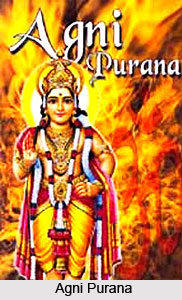 Yogis impart salvation and illumine the minds of their observers with the light of true and perfect knowledge. Agni Purana has described certain characteristics and duties of a Yogi. The Agni Purana states that a Yogi should go out for alms, when the ovens have been cleansed of their cinders, and have ceased to emit smoke, the pestles have been laid aside, the scrapes of bread and remnants of food have been removed and thrown away, and lids have been placed over the cooking pans in a house-hold, and all bustle and hurry have settled down in the calm of a midday repose. The five sorts of alms which a Yogi can take, are (1) collection of small quantities of food staff from door to door, like the gathering of honey by bees from flower to flower, (2) a quantity of food enough to serve for a day and obtained from a single household, (3) alms asked for before, (4) alms not begged of and (5) alms received just at the time of meal.
Yogis impart salvation and illumine the minds of their observers with the light of true and perfect knowledge. Agni Purana has described certain characteristics and duties of a Yogi. The Agni Purana states that a Yogi should go out for alms, when the ovens have been cleansed of their cinders, and have ceased to emit smoke, the pestles have been laid aside, the scrapes of bread and remnants of food have been removed and thrown away, and lids have been placed over the cooking pans in a house-hold, and all bustle and hurry have settled down in the calm of a midday repose. The five sorts of alms which a Yogi can take, are (1) collection of small quantities of food staff from door to door, like the gathering of honey by bees from flower to flower, (2) a quantity of food enough to serve for a day and obtained from a single household, (3) alms asked for before, (4) alms not begged of and (5) alms received just at the time of meal.
A Yogi may receive the alms in the cup of his folded palms, or keep them in a bowl of his own, out of the vessel or cup in which they have been given. It has been said that constantly meditating upon the results of the good and evil deeds of men, and their progress in the path to spiritual perfection, a Yogi should fulfill the duties of his order, nourishing a clean spirit in a clean heart. Yogis should devote their lives to the service of the honest, the imbecile, the maimed, the blind and the deaf. In short their life should be a string of efforts for the solace and amelioration of the suffering humanity. It is their prerogative to emancipate the worldly Brahmanas from the trammels of this life and to lead the struggling, staggering humanity out of illusion and ignorance, to light and rest.
The features of piety which a Yogi should keep in mind are the comprehension of God, forbearance, self-control, uncovetousness, purity, abstinence, modesty and knowledge. The five virtues which a Yogi should follow are truthfulness, forsaking of all cruelty, uncovetousness, abstemiousness, and absence of any desire or taking of any alms or gifts. The five Niyamas which they adhere to are purity, contentment, practice of austerities, reading of the Vedas, and the contemplation of God. A Yogi should sit in the attitude known as the Padmasana. As per as the duties of a Yogi is considered it is stated that a Yogi should make the forest his abode and should live upon fruits, edible roots and the seeds of Nivara grass. Clear fountain water should be his drink. He should bathe thrice every day, beg no alms, and annihilate all passions and propensities. Hospitality to guest and worship of the god is his two fundamental features.
In summer he should practise the act known as the Panchatapas. In the rainy season he should practice the same when the sun would be seen through the interstices of the clouds. In the Hemanta (forepart of the winter) he should practise the most rigid and austere task in wet clothes; and then start straight way on a journey to the different quarters of the without ever thinking of returning to the place of original start.



















